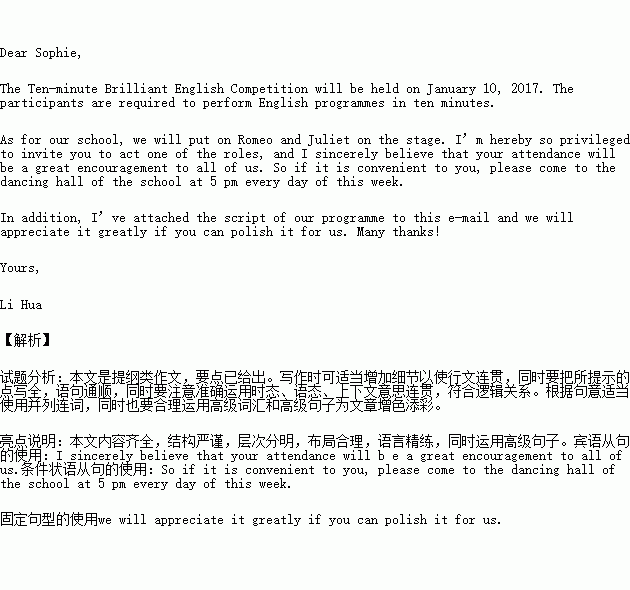题目内容
假定你是李华,是学校的学生会主席,正在准备排练英语节目参加于2017 年 1 月 10 日举行的株洲市“十分好英语”(Ten-minute Brilliant English)竞赛(参赛者表演英语节目,时间十分钟)。要求你给你校外籍教师 Sophie 写一封电子邮件,向她说明竞赛的基本情况、你对节目的设想和排练的时间;请她担任一个角色和对脚本(script)进行修改。
注意:1. 词数 100 左右;
2. 可以适当增加细节,以使行文连贯。
练习册系列答案
 阅读快车系列答案
阅读快车系列答案
相关题目

